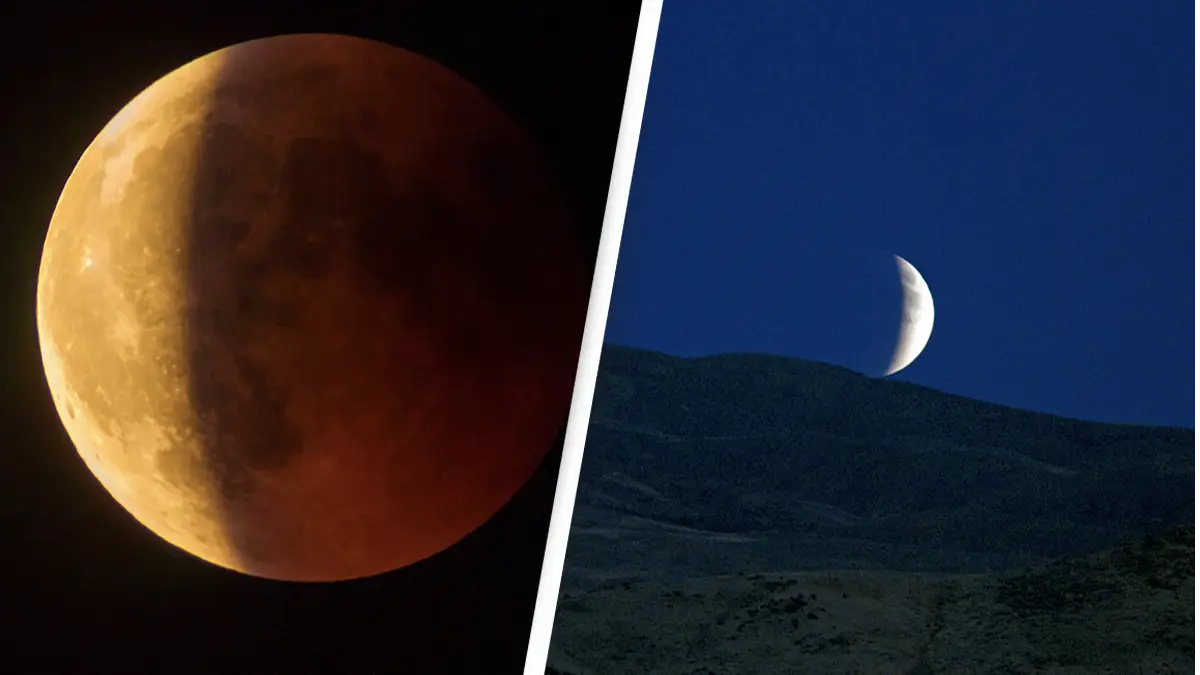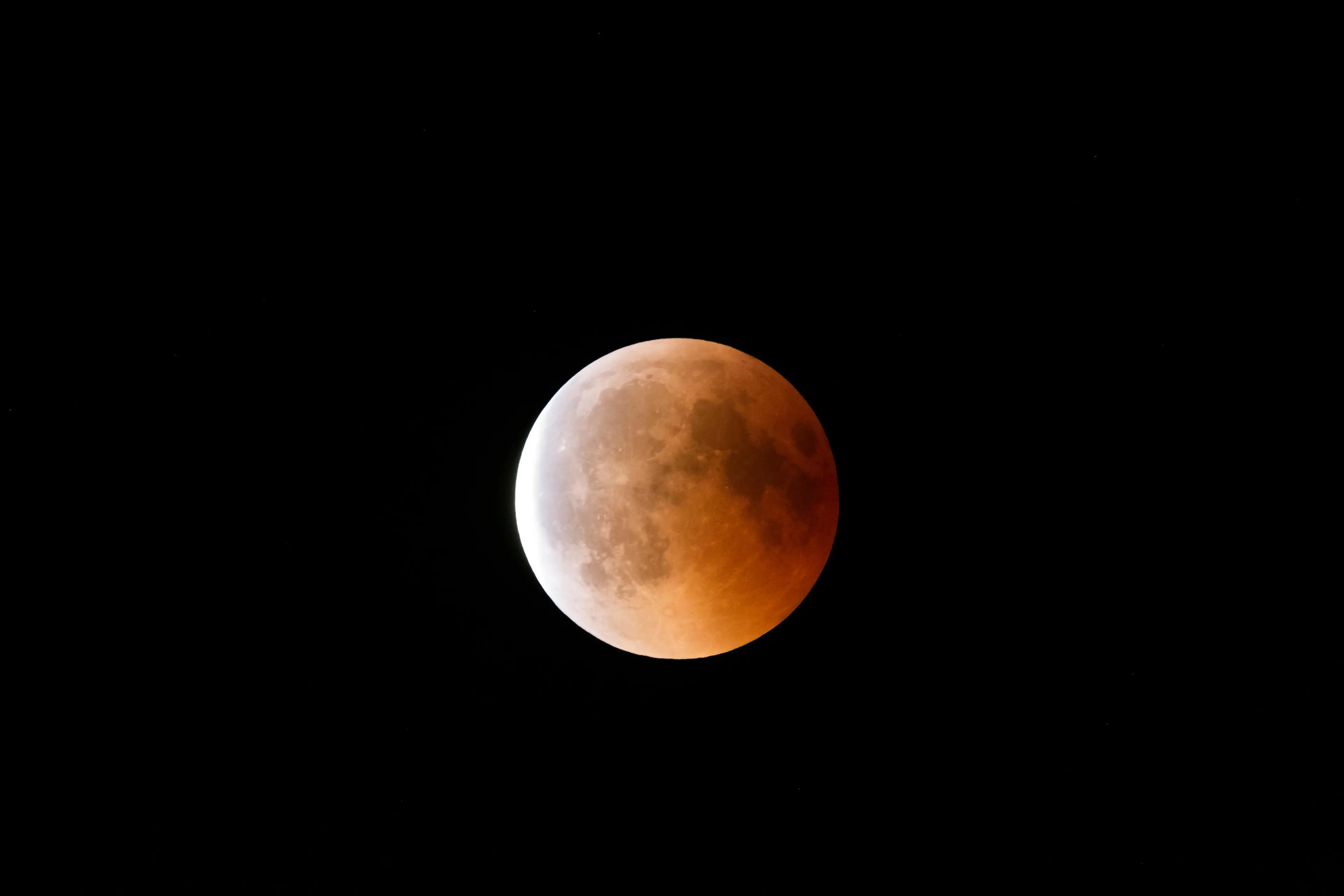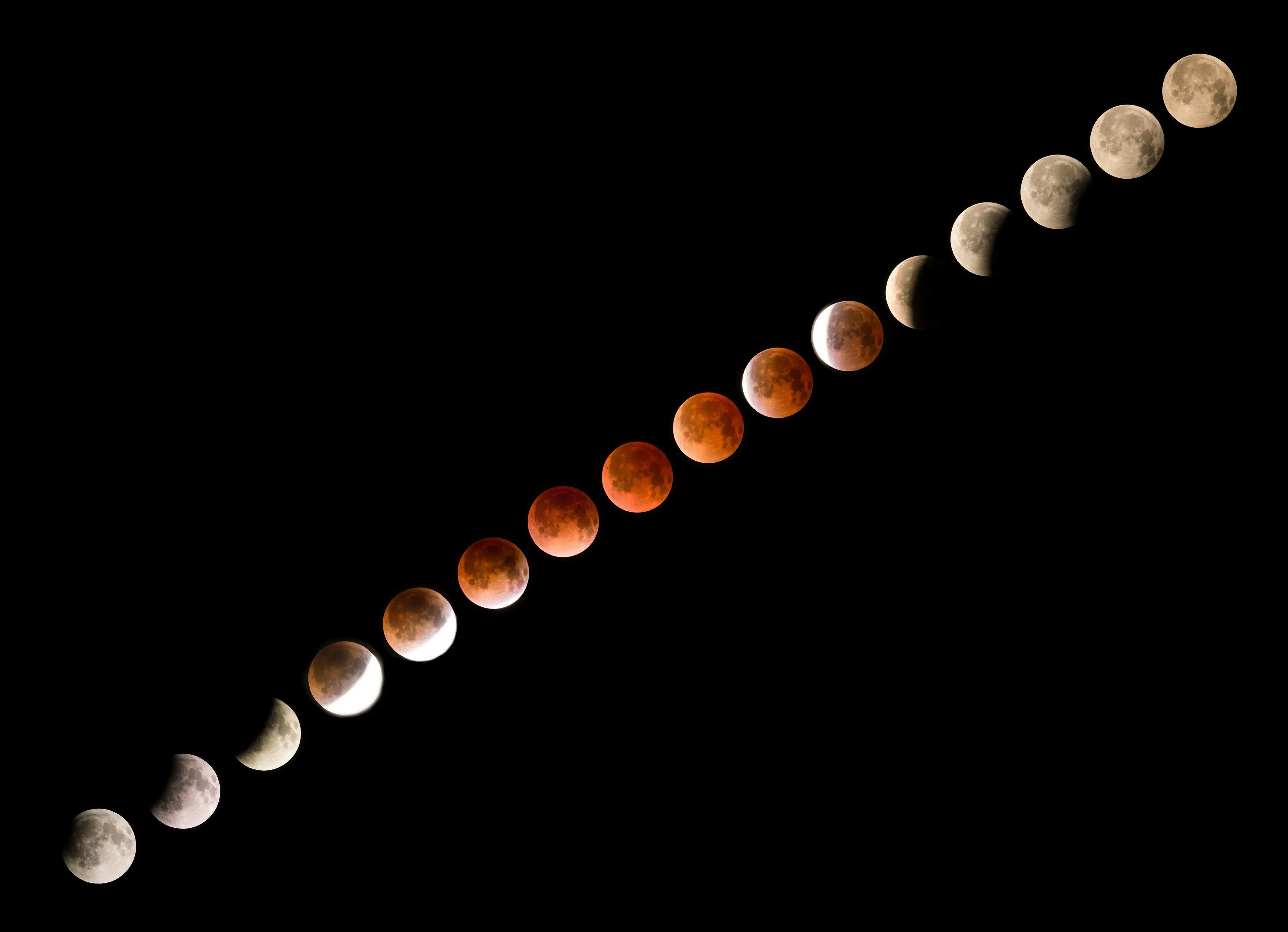
Astronomy fanatics will be in for a treat this weekend as the Earth is set to move between the Moon and the Sun and create a Blood Moon total lunar eclipse.
Kicking off on Saturday, 15 May, the event will mark the first total lunar eclipse in nearly a year, with the previous taking place on 26 May, 2021, and is set to last about five hours and 20 minutes in total.
The entire eclipse will be visible to most sky watchers in North America, Central and South America, as well as many in Europe, Africa and the Eastern Pacific, although not everyone will see totality.

Advert
Those who unfortunately won't witness the lunar eclipse include people in Alaska, Australia, and East and Central Asia, though New Zealanders might be able to catch a partial eclipse in the early evening of 16 May.
During the eclipse, the Earth’s shadow will gradually fall on the Moon until it is fully inside Earth’s umbra - the period known as totality. During this period, set to last around 75 minutes, the Moon will glow a shade of red or orange. The exact colour will depend on the content of Earth’s atmosphere at the time.
The sky will darken significantly throughout totality, allowing better visibility of celestial features like the Milky Way.
The timing of the eclipse will vary depending on location, with viewers on the east coast of the United States able to view the event from 10:00pm local time on Saturday, with totality set to being at 12:29am.

Those hoping to witness the event in the UK will have to stay up quite a bit later, with the partial eclipse of the Moon set to begin at 2:28am before totality hits at 3:29am.
Viewers won't need any special glasses or instruments to watch the eclipse unfold, though as with many astronomical events a pair of binoculars or a telescope will allow a more detailed view of the scene.
There may be another chance to witness a total lunar eclipse later this year, with the next one set to take place on 8 November.
The event later this year will be visible for those set to miss out this weekend, including astronomy fans in Asia and Australia, though those who have a chance on Saturday shouldn't take it for granted as much of Africa and Europe won't be able to join in the fun next time.
If you have a story you want to tell, send it to UNILAD via [email protected]
Topics: Space, Viral, World News, UK News, US News